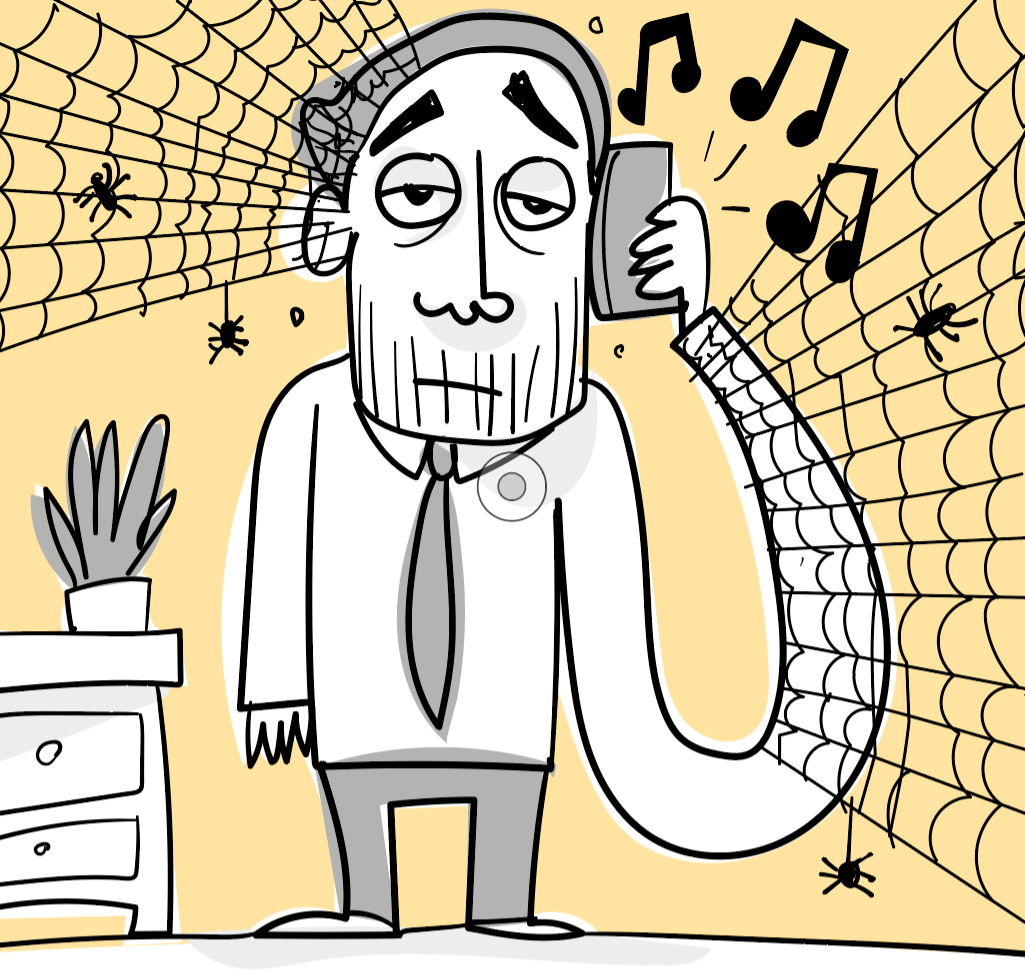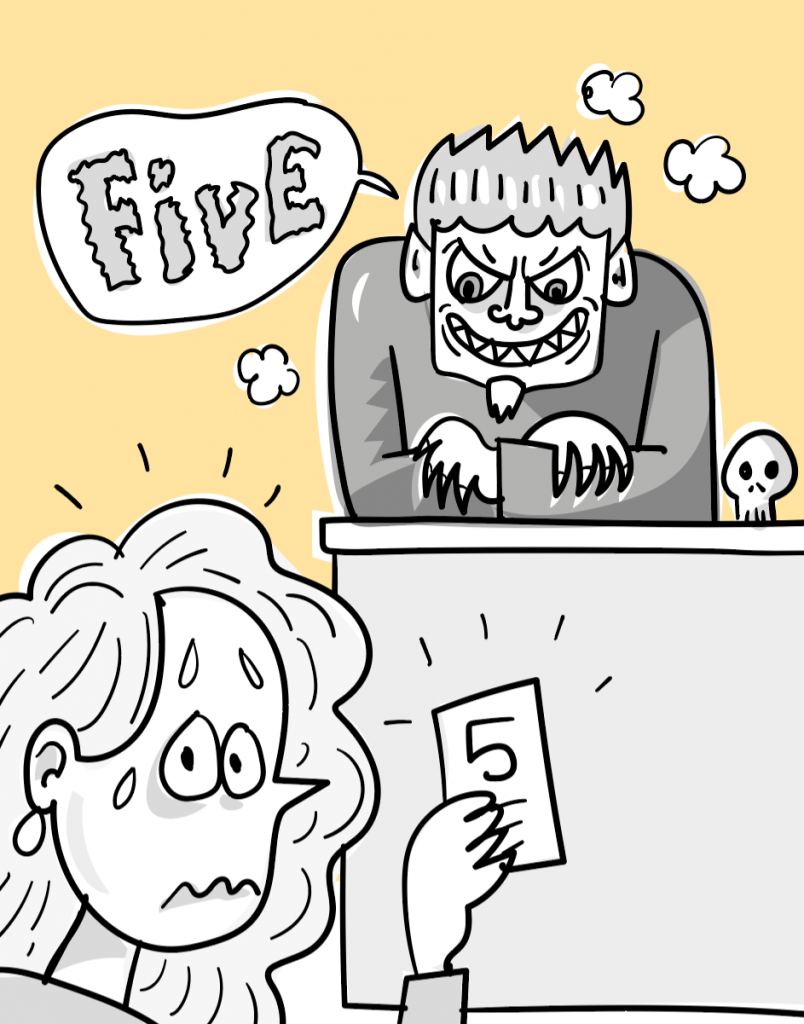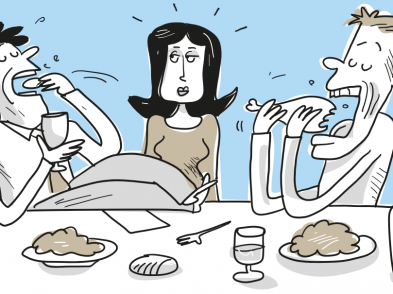The story goes like this: bureaucracy in Italy was created by Austrians and worked very well until the Italians took over. Then everything changed and Austrian respect for rules was replaced by Italian cunning and creative rule bending. Of course, not all stories in Italy are true and another version says that during centuries of foreign domination, especially in the south where the bureaucrats still come from, furbismo—semi-illegal cunning—developed as an art form. Naturally, the response was to have more complicated rules to make life more difficult for the rule benders, and many new laws were added to the already overcrowded statute book. More laws mean more documents and many more signatures, often three to five on every page, signatures that nobody reads and are never checked. One of the first things that happens when you start living in Italy is that your signature deteriorates. Instead of the beautiful well-formed flourish that you practised at school and proudly underlined, your Italian version gets simpler and shorter until any old squiggle will do.

You, as a foreigner, will fill in hundreds of documents and stand in long queues to do with your residence, your gas and electricity bills, your money and your health. You need proof of identity. At first, a passport will do, but you really need an identity card and must get a codice fiscale to identify yourself financially. The first few forms may seem simple, but get them wrong and you will be miserable for the rest of your life as they are very hard to correct. Naturally they need your name, but beware. It doesn’t matter if you cannot speak Italian as someone will always help you out, but there are two words that really matter: nome and cognome (first name and surname). Few want to admit it, but most intelligent English-speaking people confuse their nome and cognome from time to time. Even after living in Italy for many months you will still be erasing mistakes on forms. Worse still is that some forms ask for your full name. Don’t go there. If your foolish parents gave you a middle name, don’t mention it. You, John Arthur Smith, will never be able to shake off the Arthur once the bureaucrats know about it. You will be lost in alphabetical black holes as John Arthur or Arthur Smith and, like a badly trained dog, will not answer when called.
Remembering your date of birth is easy, but place of birth is not. You will probably get into a muddle about what you wrote last time for province or commune. It does not matter at all where you were born. Nobody cares so long as you are consistent. I was born in India, but I have only a very vague idea about where, and anyway boundaries and place names have changed since then. A nice woman in some government department told me it would be much more sensible just to write London. Inaccurate but so much less trouble. Too late, too late.
Now, here are a few simple rules to enjoy bureaucracy in Italy.
1. Do not try to solve your problem by telephone.

Unless, of course, you like listening to Vivaldi’s Four Seasons and being told that the voice you hear is living in Italy. The voice that lives in Italy will tell you to follow a series of steps, involving numbers and hash to reach another voice—origin not revealed—that will advise you to call a different number. Get an appointment online whenever you can. The computer systems are surprisingly efficient and easy to use.
2. When you go to a government office, the first thing you must do is to take a number.

Don’t waste time getting advice from the person at the desk. They will almost always tell you to take a number anyway. If you have to talk to them, do it later, and if the number is not needed, throw it away. There are few things more irritating than being the first person to arrive, finding that everyone else has a number and you are at the back of the queue.
3. Always go armed with at least two colour photographs.

They may not be needed, but if they are, you will have to go out into the street to find a photo booth and then buy something you do not need in order to have the correct change for the booth. Another more expensive precaution is to have a marca da bollo in your pocket. This is a special adhesive contract stamp that you usually get for 16 euro from a tobacconist. If you don’t need it, store it for another time.
4. When you get to the sportello, the little window that the bureaucrat sits behind, the first thing you must do is make friends.

The person you are talking to is more important than you are, probably more intelligent, certainly better informed and will dislike bureaucracy as much as you do. Their life is really very boring and the only thing that brightens their day is human contact. Often, they will have photographs of their family in their sad little cubicle. Ask about the photos, especially if there are children. Otherwise notice the little plastic turtle on the end of their powerful pen, and tell the lie that you too have a turtle on your pen. Once they are on your side, they will want to help you to defeat the system.
5. Never get angry.

Most officials are really kind and friendly. They dislike their job more than they dislike you. Upset them, and they will begin to dislike you more than they dislike their job, and will enjoy using their power. Don’t shout. I know that there is always someone in the room who is having a row with an official, shouting and calling for the superintendent. But this approach almost never works, so don’t try it unless your Italian is perfect, and you really enjoy a fight.
6. Sometimes you will be unlucky, and no amount of charm will warm up the hatchet-faced idiot behind the glass.
They will say no and, when you get cross, will say no again louder. Stop wasting your time. After a long argument that you are almost bound to lose, they ignore you and then call the next number who will be annoyed with you for taking so long, join forces with the official and hate you too. The answer to these rare nasties is to smile charmingly at them, say thank you and wander off looking miserable. Give them the pleasure of a small victory and go back and take another number. The chances are very good that you will meet a different, kinder face who will say yes. If you are called back to the same sportello with the same nasty, don’t go there, but sit still until some other unfortunate person is called and then take another number.

7. Learn how to cheat.

I was brought up to be ashamed of cheating, but in Italy things are different. A small successful cheat that harms nobody, if done in collusion with the official, is a source of pride and will give pleasure to both of you. But be careful. The cheat must be subtle and not in-your-face dishonesty. Here is one example. A Covid bureaucratic delay caused me to be outside the law by three months. The official could not accept my document and was obliged to tell the police.
-Why, she asked, did I date the document three months ago rather than today?
-You mean if I change the date to today all will be well?
-Yes.
-Then can I erase and re-date the document now?
-Certainly not, that would be doubly illegal, but you could come back tomorrow with a new document.
The process may be long, you may get frustrated, you may need additional forms and you will certainly need patience. Never give up as you almost always win in the end and the surge of joy that you feel as the last rubber stamp comes down makes it all worthwhile. And there is a bonus—for the next few months you will enjoy telling bored friends about your bureaucratic triumph. Just as I am doing now.





